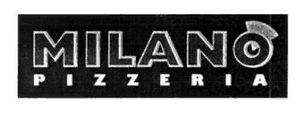A decision of the Federal Court illustrates the importance of proper trademark management in operating a business. The Plaintiff seems to have ignored this to its detriment, notwithstanding that its business was otherwise successful.
The Facts
The Plaintiff is an Ottawa-based company that licenses independent pizzeria owner-operators. At the time of trial, there were thirty-eight MILANO PIZZERIA stores run by independent owner-operators and licensed by the Plaintiff. The licence agreements were not always in writing but were agreed to verbally and were understood to involve "purchasing" and "territory" in exchange for use of the name "Milano Pizza" or "Milano Pizzeria."
The written agreements were substantially similar. Some identified the registered trademark as "Milano Pizza," while others referred to "Milano Pizzeria" as the registered trademark, which then was defined as the "Business Name" that was licensed to the named licensee on a non-exclusive basis. Only the most recent agreement mentioned the Registered Mark. The rules or terms involve purchasing branded products from approved distributors or suppliers and using the Business Name within an agreed-upon territory.
The licensees could operate their businesses as they saw fit, including store décor, advertising, staffing, uniforms, training, menu offerings (with limited exceptions,) pricing, and food preparation, including recipes used.
The Plaintiff owns the trademark MILANO PIZZERIA & Design shown below.

registered for, among other things, "take out restaurant services, with delivery" based on use in Canada since at least as early March 1994 the (Registered Mark).
The Action
A dispute arose with one of the licensees, and their licence was terminate. Later an action was brought in the Federal Court for trademark infringement and related relief. The action was vigorously defended, and a counterclaim seeking to expunge the Registered Mark was brought.
The primary ground of invalidity was that the Registered Mark was not distinctive. The Trial Judge concluded that the registration of the Registered Mark was invalid for two reasons.
First, regardless of the existence of oral or written licence agreements, the Plaintiff did not satisfy the onus on it to establish that it exercised sufficient control over the services performed by the Licensees such that Plaintiff would benefit from the deeming provision of subsection 50(1) of the Trademarks Act. Under the subsection, if an entity is licensed by the trademark owner to use a trademark and the owner has under the license, direct or indirect control of the character or quality of the services in association with which the trademark is used, advertised or displayed, the licensed use is deemed to be the use of the owner A written licence agreement is not a requirement to establish licensed use of a trademark under the subsection, but there must be evidence of a licence and the owner's control over the character or quality of the services.
Here there was no evidence that the Plaintiff exercised direct or indirect control of the character or quality of the services in association with which the Registered Mark was used. The licences contained no product specifications, right of inspection or right to obtain samples or delivery requirements. In addition, there was little evidence that the Plaintiff regularly inspected or approved products and menu items or monitored delivery.
The concurrent use by the Licensees without complying with subsection 50 rendered the Registered Mark non-distinctive as there were multiple confusing sources of the services.
Second, the lengthy coexistence of another pizza supplier carrying on business as PIZZERIA MILANO in Masson, Quebec, undermined the distinctiveness the Plaintiff otherwise might have enjoyed in the Registered Mark, even if it was validly licensed under the Act.
The Plaintiff admitted, and during the prosecution of its trademark application, it knew other restaurants in Ontario and Canada used MILANO in their name. There was no evidence that the Plaintiff had a program for policing the Registered Mark or PIZZERIA MILANO, For example, the written licence agreements contained no provision obligating the licensee to bring to the Plaintiff's attention any unauthorized, confusing uses of the Registered Mark or the Milano Word Marks by third parties. The Plaintiff did not oppose trademarks containing the word MILANO potentially confusing its mark.
Comment
The most significant asset of a retail business is frequently the trademark it uses to carry on business. A strategy to protect that mark and the goodwill associated with it needs to be in place from the commencement of the business. A specific mark needs to be used, not multiple variants. The mark is what consumers see, and the message needs to be repeated to enhance distinctiveness.
The owner needs to understand how the trademark system works and have a knowledgeable lawyer who can assist. Compliance with the requirements concerning licensing is vital, as this case shows. The same goes for the preparation and settling of appropriate written licenses. For example, a typical term is that the licensee will not challenge the registration of the licensed mark.
All of the material in the CIPO file relating to the prosecution of a trademark application is admissible in proceedings relating to the mark. Care has to be taken to avoid making unnecessary admissions. The Judge here gave significant weight, to the detriment of the Plaintiff, concerning what had been said on its behalf in responding to an examiner's report.
When there are problematic third-party marks, the strategy needs to extend to them. Typically, this will include monitoring the marketplace and opposing applications and entering into settlements when possible.
A version of this article originally appeared in the Lawyer's Daily, published by LexisNexis Canada Inc.
The content of this article is intended to provide a general guide to the subject matter. Specialist advice should be sought about your specific circumstances.

